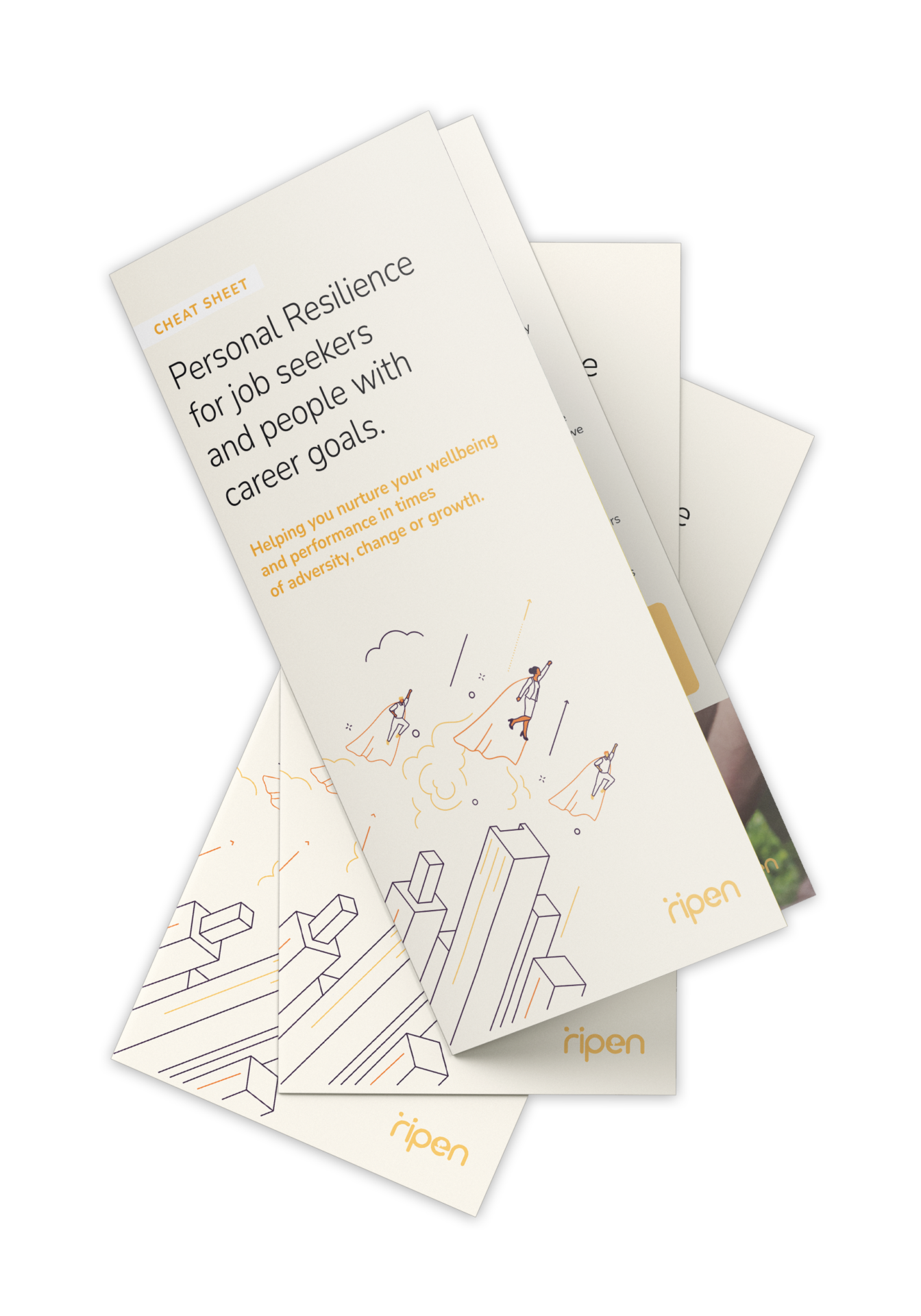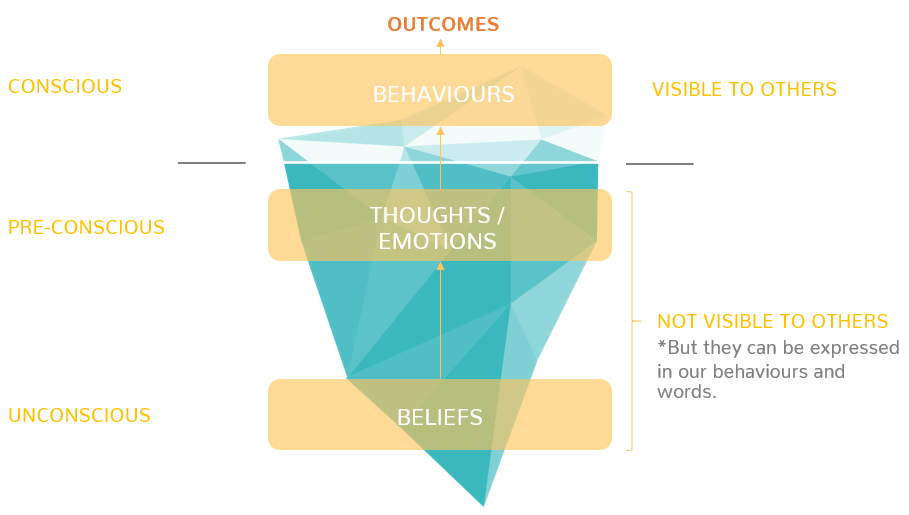Let’s say you are asked to do a speech at a friend’s wedding, but you have a belief that you are terrible at public speaking! As the wedding draws close, your mind is flooded with visions of you forgetting your speech, accidentally swearing, or worse blindly telling the bride how good she looks now she’s finally paid for a professional makeup artist! This leads to thoughts and an emotional state of fear and dread. This belief and the subsequent thoughts and emotions, show up in your behaviours before the speech e.g. putting off preparing for the speech to avoid thinking about it, during the speech e.g. nervous sweating and bumbling, and even after the speech e.g. avoidance of ever doing public speaking again! Your belief has shaped your thoughts, your emotions and in turn your behaviours, leading to the outcome you dreaded in the first place. Doh!
Your beliefs are many and complex. They include beliefs you have about yourself, beliefs about others, and beliefs about the world. So exploring them all is practically impossible. However, the beliefs to be most interested in getting visibility of are those that could be affecting (or limiting) your outcomes. Better known as your ‘limiting beliefs’.
Instead of letting your limiting beliefs remain unconsciously affecting your outcomes, here’s a simple three step process for uncovering your limiting beliefs. As they say in the steps to recovering from any addiction, the first step to recovery is admitting you have a problem! Then you need to know how to let go or replace these limiting beliefs with more favourable ones. Once you’ve completed the below steps checkout our article on how to hack your beliefs.
Steps for uncovering your Limiting beliefs:
Step 1. Identify an area of your life where you are not getting the outcomes or results you want e.g. job interviews, public speaking, managing deadlines, relationships, etc.
Step 2. Make a list of what’s not working currently e.g. nerves, lack of planning, lack of skills or experience, lack of motivation or confidence etc.
Step 3. For each thing that’s not working, answer this question: ‘What do I believe about myself, about others and/or about the world that could be causing this outcome?’ e.g.
- I believe I’m not [outgoing] enough
- I believe others [find my accent annoying] because [English isn’t my first language]
- I believe only [highly experienced people] can [do public speaking]
- I believe there aren’t enough [jobs available for my skills] in the world
*If you are struggling to uncover your beliefs for yourself, sit down with someone who knows you, or perhaps with a coach or mentor. Tell them the outcomes, situations and thoughts you have about yourself, about others and about the world that could be limiting you. Ask them what they have observed you say or do in your behaviours that could provide some further insight into your beliefs?


